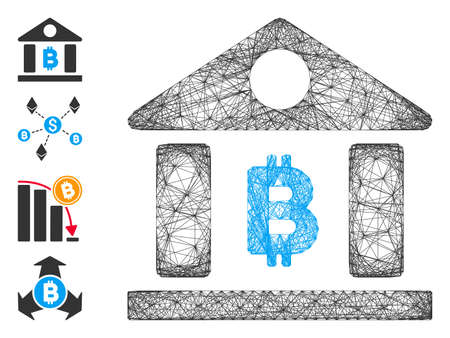1. What Is Earnest Money?
When youre buying a home in the U.S., youll often hear the term “earnest money.” This is a deposit made by the buyer to show that they are serious about purchasing the property. Its sometimes called a “good faith deposit,” and its one of the first financial steps in the home-buying process.
Earnest money is not an extra fee—its usually part of your down payment or closing costs. The main purpose of this deposit is to show the seller that youre committed to buying the home and not just shopping around.
Why Is Earnest Money Important?
Real estate transactions involve many moving parts, and both buyers and sellers invest time, effort, and money into the process. Earnest money helps protect both sides:
| For Buyers | For Sellers |
|---|---|
| Shows commitment to the purchase | Provides confidence that the buyer is serious |
| Strengthens offer in competitive markets | Compensates for lost time if buyer backs out without reason |
How Much Is Typically Offered?
The amount of earnest money can vary depending on the local market and the price of the home. Generally, it ranges from 1% to 3% of the homes purchase price. In hot markets, buyers might offer more to stand out.
Example:
| Home Price | Typical Earnest Money (1%-3%) |
|---|---|
| $250,000 | $2,500 – $7,500 |
| $400,000 | $4,000 – $12,000 |
| $600,000 | $6,000 – $18,000 |
Where Does the Money Go?
After your offer is accepted, your earnest money is usually held in an escrow account managed by a neutral third party such as a title company or real estate brokerage. It stays there until closing day, when its applied toward your total costs.
Is It Refundable?
Whether or not you get your earnest money back depends on how your contract is written. If you back out for a valid reason listed in your purchase agreement—like failing a home inspection or financing falling through—you’ll typically get it back. But if you simply change your mind without cause, you could lose that deposit.
2. How Much Earnest Money Is Typical?
When youre buying a home, one of the first financial steps youll take is putting down earnest money—also known as a good faith deposit. This shows the seller youre serious about your offer. But how much is typical? The answer can vary depending on where you’re buying and the specific situation.
Average Earnest Money Amounts by Market
Earnest money amounts differ across the U.S., often influenced by local market trends and competition. Heres a general look at what buyers might expect in different types of markets:
| Market Type | Typical Earnest Money Amount |
|---|---|
| Small Town or Rural Area | $500 – $1,000 |
| Mid-Sized City | $1,000 – $5,000 |
| Large Metro Area or Hot Market | $5,000 – $10,000+ |
Factors That Influence the Amount
A few key factors affect how much earnest money you’ll need to put down:
- Local Market Conditions: In a seller’s market with lots of competition, higher deposits are more common to make offers stand out.
- Home Price: The more expensive the home, the higher the earnest money deposit typically is.
- Customary Practices: Some areas have set expectations for what buyers should offer in earnest money.
- Negotiation Between Buyer and Seller: The final amount is often part of the overall offer negotiation.
Common Percentage Ranges
Instead of flat dollar amounts, some buyers calculate their earnest money as a percentage of the purchase price. Here’s a general guide:
| Purchase Price Range | Typical Earnest Money (%) |
|---|---|
| $100,000 – $300,000 | 1% – 2% |
| $300,001 – $600,000 | 1% – 3% |
| $600,001 and up | 2% – 5% (or more in competitive markets) |
The important thing to remember is that earnest money isn’t lost—it usually goes toward your closing costs or down payment if everything moves forward smoothly. Understanding what’s typical in your area can help you make a stronger offer and avoid surprises later in the process.

3. Where Is Earnest Money Held?
When a buyer makes an offer on a home and includes earnest money, that deposit doesn’t go directly to the seller. Instead, its typically held in escrow by a neutral third party, such as a title company, real estate brokerage, or an attorney, depending on state laws and local practices.
This process ensures that both the buyer and seller are protected during the transaction. The escrow holder keeps the funds safe until all conditions of the purchase agreement are met and the closing is finalized.
Why Use Escrow for Earnest Money?
The use of an escrow account helps create trust between both parties. Here’s how it benefits everyone involved:
| Party | Benefits of Escrow |
|---|---|
| Buyer | Ensures their money is protected if the deal falls through due to issues like failed inspections or financing problems (depending on contingencies). |
| Seller | Shows the buyer is serious and committed, while also ensuring funds are available if the buyer backs out without a valid reason. |
What Happens to Earnest Money at Closing?
At closing, the earnest money is usually applied toward the buyer’s down payment or closing costs. It becomes part of the overall transaction amount and is accounted for in the final settlement statement.
If the Deal Falls Through—Who Gets the Money?
This depends on the terms outlined in the purchase agreement. If a contingency (like home inspection or financing) isn’t met and the contract allows it, the buyer typically gets their earnest money back. However, if the buyer breaks the contract without a valid reason, they may forfeit their deposit to the seller.
Summary of Common Escrow Scenarios:
| Scenario | What Happens to Earnest Money? |
|---|---|
| All contract terms met; sale closes successfully | Applied toward down payment or closing costs |
| Deal canceled due to a valid contingency | Returned to buyer |
| Buyer backs out without valid reason | Forfeited to seller |
| Dispute over earnest money release | Held in escrow until resolution or legal action determines outcome |
The escrow system provides peace of mind by protecting both sides and ensuring fairness throughout the home buying process.
4. What Happens to Earnest Money at Closing?
Once you’ve made it through the home buying process and reached closing day, you might be wondering what happens to your earnest money deposit. Good news—it doesn’t just disappear! That deposit you made at the start of the transaction is actually applied toward your overall costs when buying the home.
How Earnest Money Is Used
At closing, the earnest money is typically credited toward either your down payment or your closing costs. It’s not an additional fee; it’s part of the total amount you already owe to finalize your home purchase. Here’s a quick look at how it works:
| Use of Earnest Money | Description |
|---|---|
| Down Payment | The earnest money can go toward the total down payment amount required by your lender. |
| Closing Costs | If your down payment is already covered, the earnest money can help pay for closing costs like lender fees, title insurance, and other administrative expenses. |
Example Scenario
Let’s say youre buying a $300,000 home and plan to put down 10% ($30,000). You provided $5,000 in earnest money when your offer was accepted. At closing, that $5,000 is subtracted from what you still owe. So instead of bringing the full $30,000 to closing, you’d only need to bring $25,000—assuming no other credits or changes.
Where Does the Money Sit Before Closing?
Your earnest money is usually held in an escrow account managed by a neutral third party like a title company or real estate brokerage. It stays there safely until the deal is finalized.
Important Note
If the sale falls through due to reasons outlined in your contract (like a failed inspection or financing contingency), you may get your earnest money back. If not, the seller could keep it as compensation for taking their home off the market.
Bottom Line
Your earnest money is not lost—it becomes part of what youre already planning to pay when buying your new home. Think of it as a head start on your financial commitment.
5. When Can a Buyer Lose Earnest Money?
Earnest money shows a buyers serious intent to purchase a home. But while this deposit is generally refundable under certain conditions, there are situations where a buyer can lose it. Understanding these scenarios can help buyers avoid costly mistakes during the closing process.
Common Scenarios Where Earnest Money May Be Forfeited
Here are typical reasons why a buyer might lose their earnest money deposit:
| Scenario | Description |
|---|---|
| Missed Contract Deadlines | If a buyer fails to meet key deadlines—like the inspection period or financing approval—they risk defaulting on the contract and may forfeit the earnest money. |
| No Valid Contingency When Backing Out | If a buyer backs out of the deal without invoking an agreed-upon contingency (like financing or inspection), they may lose their deposit. |
| Breach of Contract Terms | Violating the terms of the purchase agreement, such as not providing necessary documentation or failing to close on time, can result in losing the earnest money. |
What Are Contingencies and Why Do They Matter?
Contingencies are conditions written into the purchase agreement that protect both parties. Common contingencies include:
- Financing Contingency: Allows buyers to back out if they can’t secure a mortgage.
- Inspection Contingency: Lets buyers renegotiate or cancel if major issues are found during a home inspection.
- Appraisal Contingency: Protects buyers if the property appraises for less than the offer price.
If a buyer decides to walk away from the deal but doesn’t have one of these contingencies in place—or misses deadlines tied to them—they could lose their earnest money deposit.
How to Protect Your Earnest Money
The best way to safeguard your earnest money is by understanding your contract and working closely with your real estate agent. Here are some tips:
- Stick to all deadlines: Mark important dates and respond quickly to requests from your lender, agent, or seller.
- Add proper contingencies: Make sure your offer includes any needed protections based on your financial situation and home concerns.
- Communicate proactively: If problems come up, talk to your agent right away so you can take appropriate action within the contract terms.
Losing earnest money isnt common when buyers follow the rules of their contract—but knowing what could go wrong helps ensure youre prepared every step of the way.
6. Tips for Protecting Your Earnest Money
When youre buying a home, earnest money shows the seller that youre serious. But its also your money—so protecting it is important. Here are some practical tips to help you safeguard your earnest deposit throughout the closing process.
Use Contingencies Wisely
Contingencies in your purchase agreement act like safety nets. They let you back out of the deal without losing your earnest money if certain conditions aren’t met. Common contingencies include:
| Contingency Type | What It Covers |
|---|---|
| Home Inspection | If major issues are found, you can renegotiate or walk away. |
| Financing | If your loan falls through, you won’t lose your deposit. |
| Appraisal | If the home appraises for less than the offer price, you can reconsider. |
| Title | If there are legal issues with the title, you can cancel the deal. |
Make sure these contingencies are clearly written into your contract before signing anything.
Pay Attention to Deadlines
The real estate process includes several key deadlines. Missing them could mean losing your earnest money—even if you have a valid reason for backing out of the deal. Keep track of:
- Inspection periods
- Loan approval timelines
- Closing dates
Your real estate agent should help you stay on schedule, but it’s also good to keep your own calendar updated just in case.
Work with Qualified Professionals
A licensed real estate agent or broker is more than just someone who shows homes—they’re your guide through the transaction. Choose someone experienced and familiar with local market practices. They’ll help:
- Explain contract terms clearly
- Negotiate protective contingencies
- Keep paperwork and timelines organized
You may also want to involve a real estate attorney, especially if youre buying in a state with more complex laws or if youre dealing with unique situations like purchasing foreclosures or short sales.
Know Where Your Money Is Held
Your earnest money is usually held in an escrow account managed by a neutral third party—like a title company or brokerage firm—until closing. Make sure you get a receipt and confirm where exactly your funds are being held. Never give earnest money directly to the seller.
Understand What Happens If You Cancel
If you need to cancel the purchase, make sure it aligns with one of your agreed-upon contingencies and that its within the timeline stated in your contract. Notify all parties in writing and follow formal procedures to request a return of your deposit.


